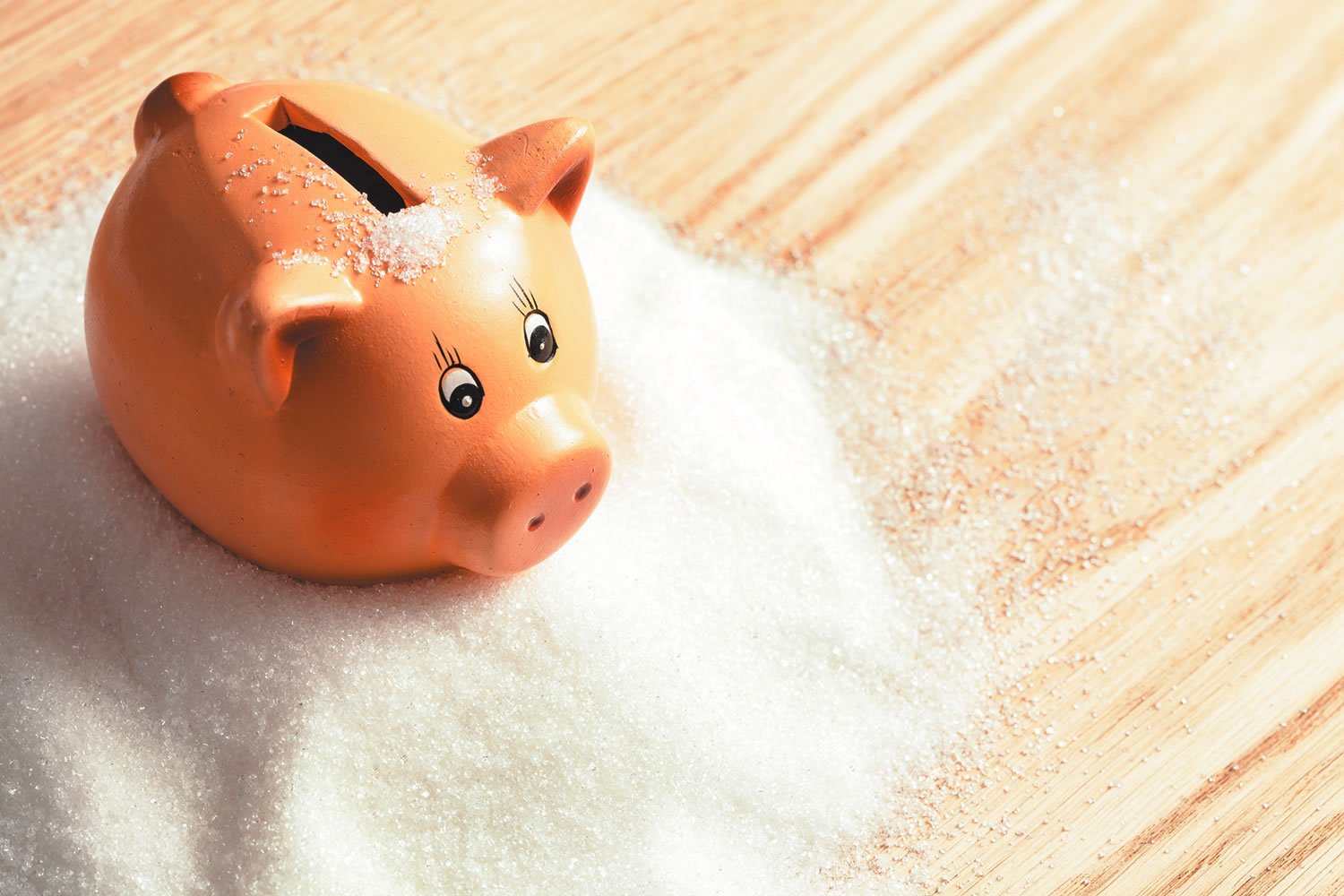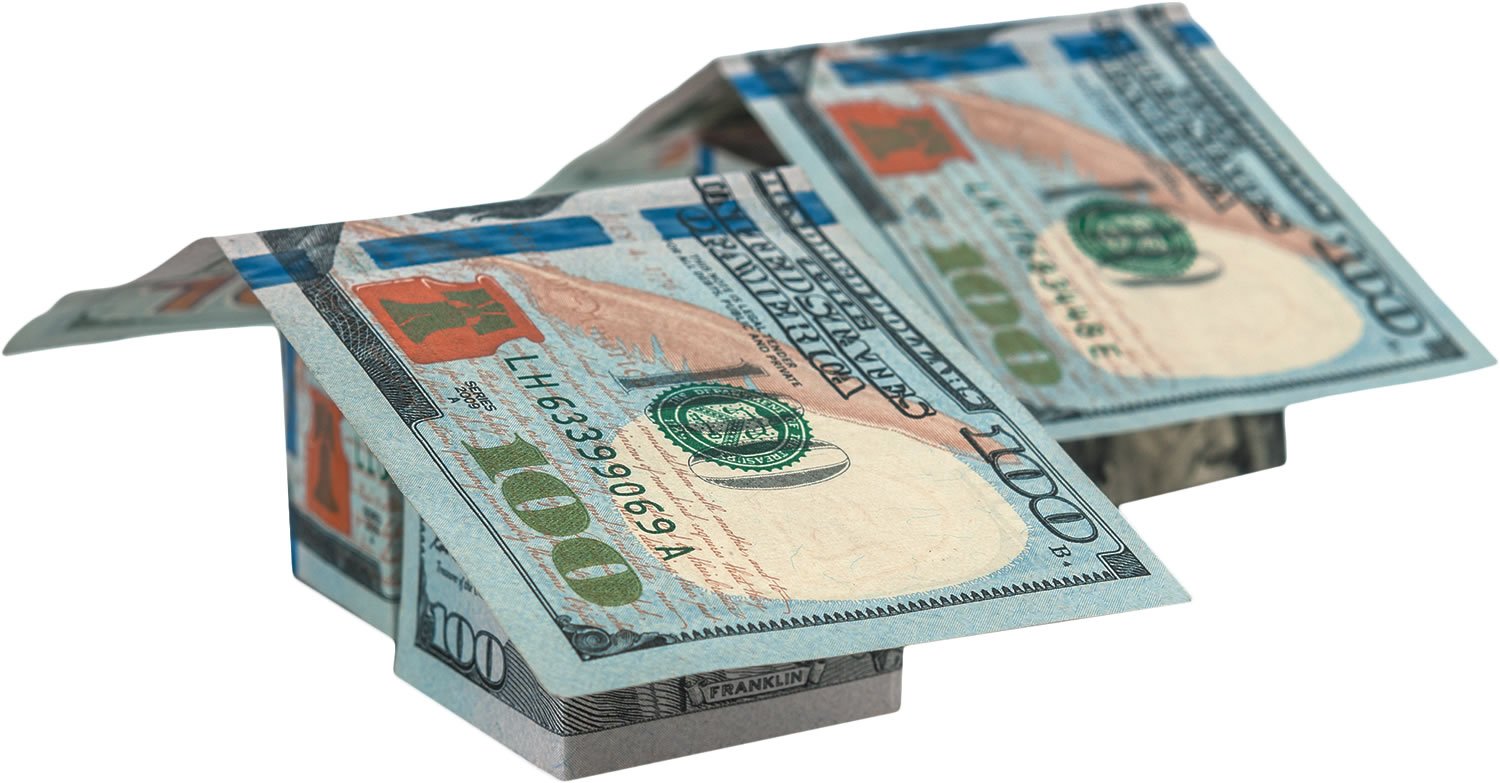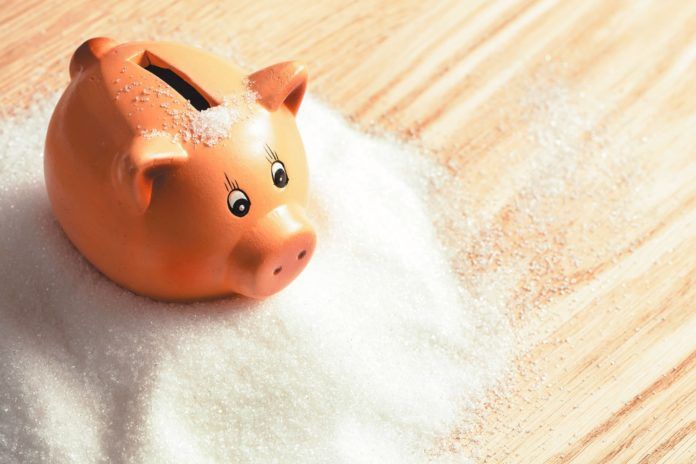© verdateo | Getty Images

There is currently a lot of interest in whether adjusting food prices could encourage more healthful food choices, and ultimately improve health. Would taxes change buying behavior in meaningful and impactful ways? Would they lead to improved public health? And is it viable (and fair) to implement such policies on a national level? Tufts experts have examined these important issues in several recently published studies.
The assumption underlying the idea of taxing unhealthy foods is that raising the price of a product will make people less inclined to buy it. “Models that researchers use to simulate outcomes suggest that taxes can lower purchasing and consumption,” says Sean B. Cash, PhD, associate professor at Tufts’ Friedman School of Nutrition Science and Policy, “but results are mixed on how much this will impact things like waistlines and cardiovascular disease risk.”
A recent analysis by Parke Wilde, PhD, professor at Tufts’ Friedman School, and his team, published in the Journal of Epidemiology and Public Health, offers promising data. “Our research used existing estimates of how risks of several chronic diseases respond to food consumption, and how that food consumption in turn responds to prices,” says Wilde. “The results were striking. For example, we estimated that a 10 percent price subsidy on several healthy food categories (fruits, vegetables, nuts, whole grains), combined with a 10 percent tax on several unhealthy food categories (sugar-sweetened beverages and processed meats) would theoretically prevent more than 33,000 deaths per year from cardiometabolic disease.”
© CHUYN | Getty Images

Testing the Taxation Waters: It will soon be possible to analyze some real-life data to confirm the results of these models and analyses. In January 2017, Philadelphia, Pennsylvania, implemented a tax on sweetbeverages to raise money for pre-Kindergarten programs, community schools, and improvements to parks, libraries, and recreation centers. While tying junk food taxes to community benefits sounds positive, the results may prove ironic. “Taxes can bring in much needed revenue, but we have to keep in mind that, with junk food taxes, behavior change and tax revenue are in direct opposition to each other,” says Cash. “The more people decrease their junk food-buying behavior, the less money comes in to the local coffers.”
Although it is still early to know if Philadelphia’s tax will improve the health of its citizens, research published in April 2018 in the American Journal of Preventive Medicine indicates some promising behavior changes. According to surveys, within the first two months of tax implementation, the odds of a Philadelphian drinking regular soda daily were 40 percent lower, energy drinks 64 percent lower, and bottled water 58 percent higher relative to respondents in nearby cities.
Unanswered Questions: There are still many unanswered questions about the impact of junk food taxes. “As someone who studies consumer behavior, my biggest concern is something I call consumer heterogeneity,” says Cash. “Different people respond differently to the same stimulus. Public health interventions at the level of taxes are blunt instruments designed to reach a lot of people. It’s hard to predict how individuals will respond.” In research published in the Journal of Consumer Affairs, Cash and his colleagues studied the effect taxes may have on buying behavior by examining people’s responses to higher prices and warning labels. People who responded most to the warning labels and increased prices already had healthier body weights. People with higher body weights (who may be more likely to achieve health benefits from making dietary changes) were less influenced to change their buying behavior. “This result goes along with the idea that people who have the biggest response to behavior change motivators are the ones who are already inclined to change,” says Cash. “Still, even small changes added up over large numbers of people can make a big difference at the population level.”
Some studies on the early months of the Philadelphia tax found a decrease of soda sales in Philadelphia supermarkets, but an increase in sales outside the city limits, suggesting that people kept buying soda, just did it elsewhere to avoid the tax. Implementing junk food taxes at the federal level would remove this loophole. A Tufts research group, along with colleagues at the New York University College of Global Public Health, recently conducted an analysis that concluded a federal tax on junk food is both legally and administratively feasible. Industry associations, unions, retailers, and others have been fighting the Philadelphia tax, claiming it hurts business, will lead to a loss of jobs, and unfairly impacts low-income consumers. Researchers have been examining the impact this tax is having on businesses, beverage sales, and buying behavior. Data from research such as that being conducted at Tufts and test cases like Philadelphia could help determine the direction of national public health policy.
“It’s important to understand the different impacts of junk food taxes so that we can minimize negative impacts and maximize desired outcomes,” says Cash. Armed with evidence from quality research and real-world data, Americans and their policy makers will be able to decide if the positive impacts of taxing unhealthful foods outweigh the negatives.
























